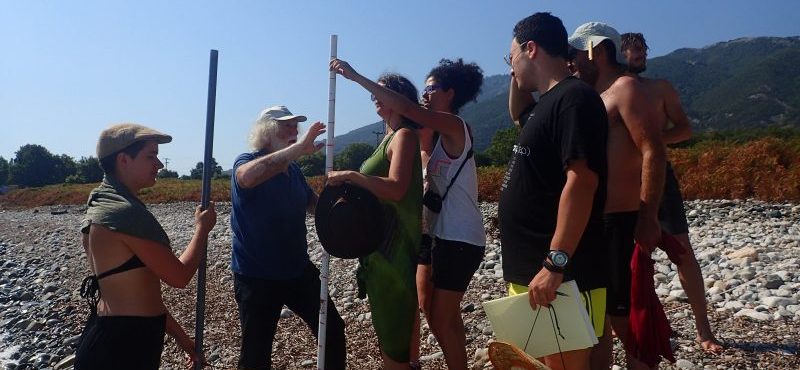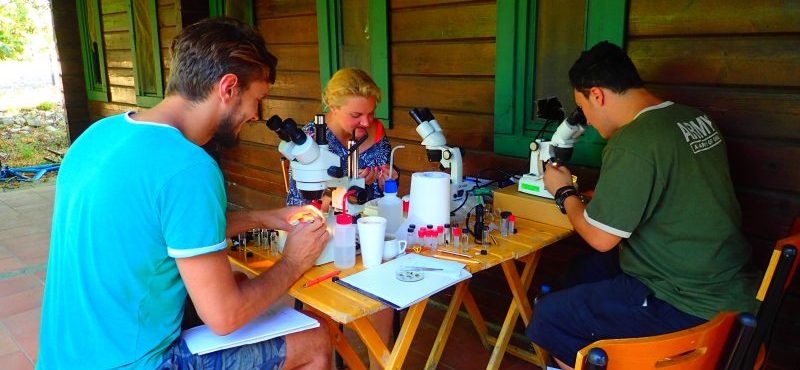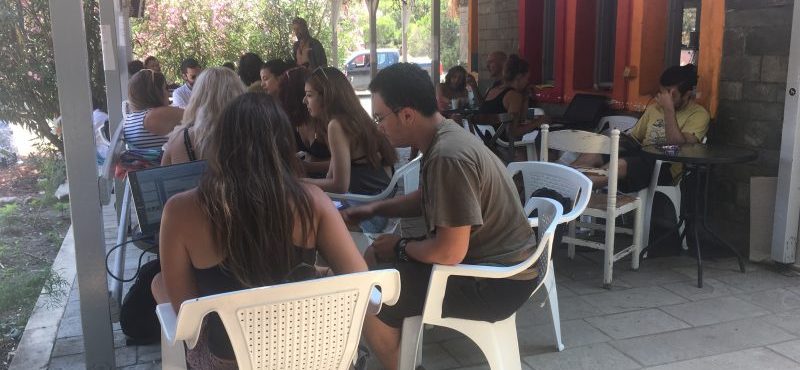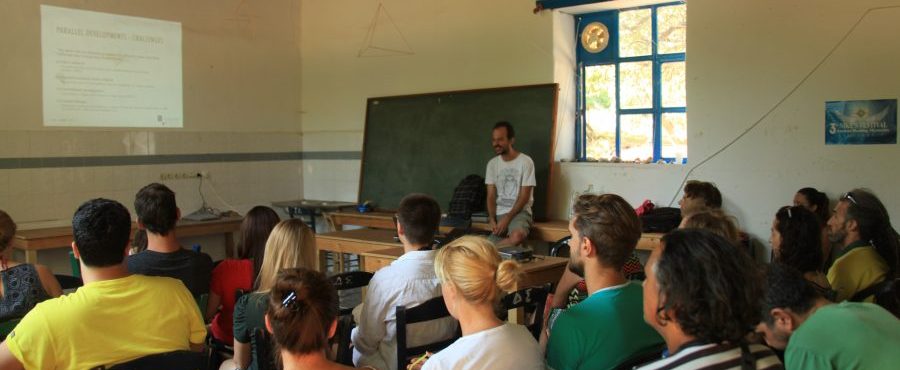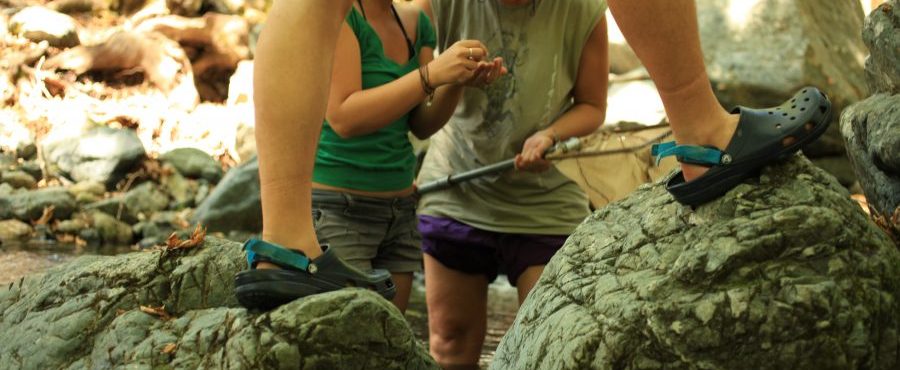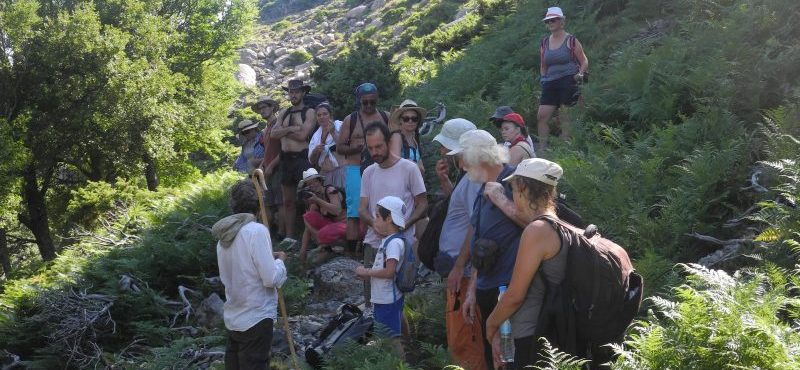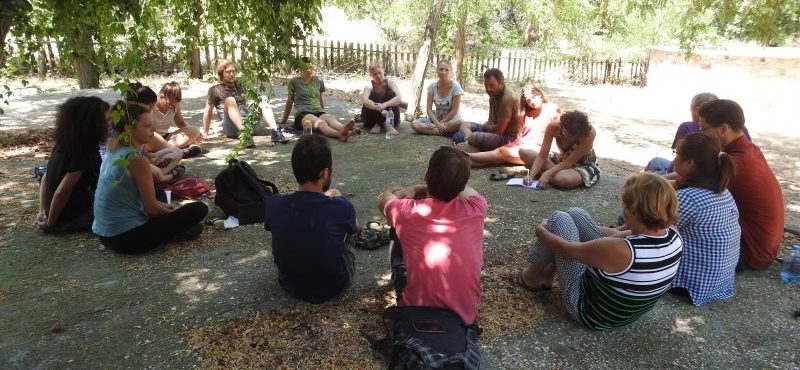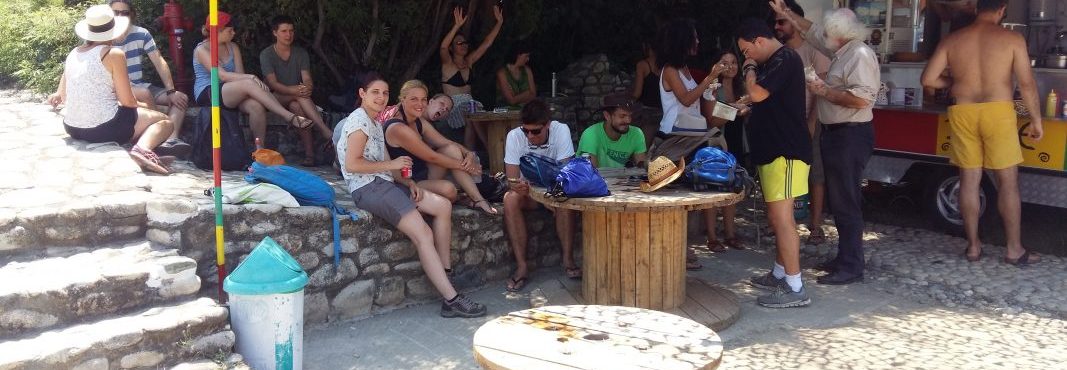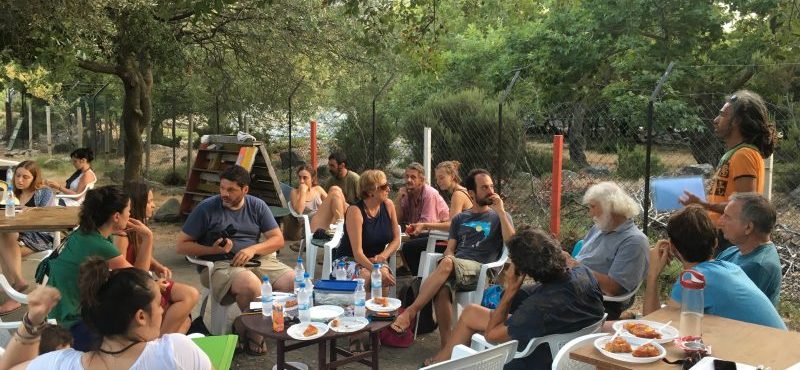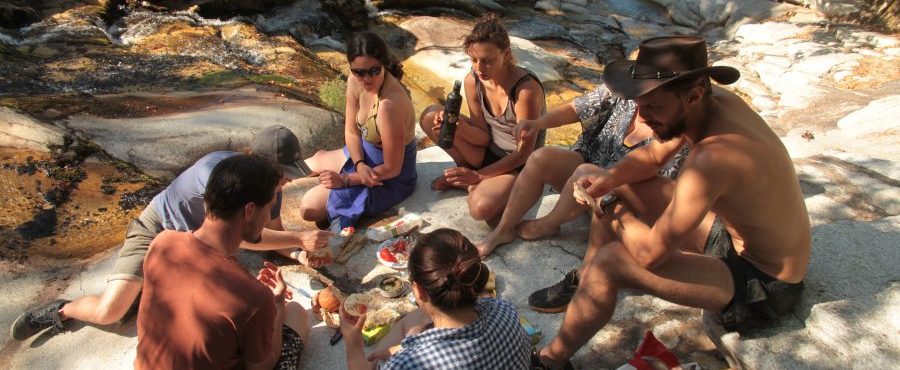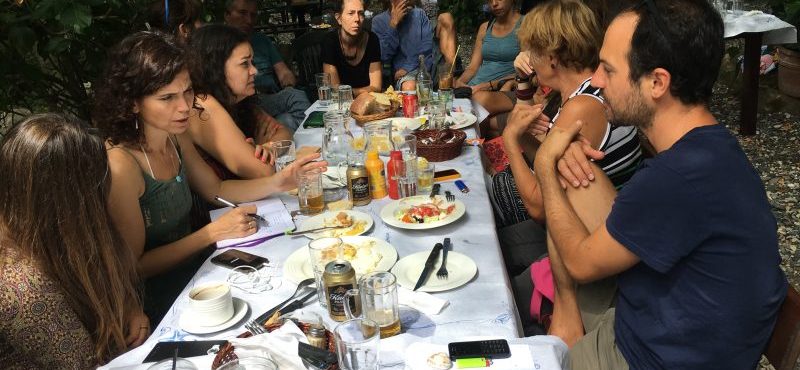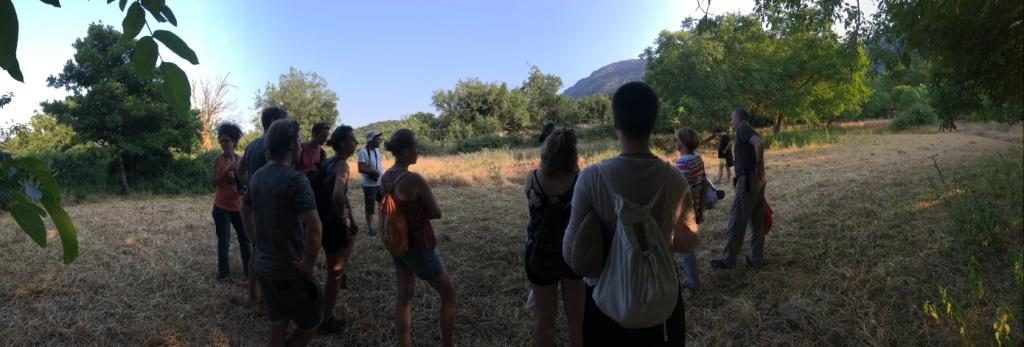In July 2017, is designed as a ten-day excursion to the island of Samothraki in Greece, organized by the Hellenic Centre for Marine Research (Athens), in collaboration with the Institute of Social Ecology (Vienna). The aim was to learn and apply social ecology and aquatic ecology approaches in a local setting while supporting current research and building synergy with a UNESCO Biosphere Reserve process. The course gave students the opportunity to engage in a real-life project and utilise their scientific training to support the process further, gather missing information in fieldwork and contribute to a science plan for further research that would also meet local interests. This provided students with the experience of participating in a transdisciplinary research process, being exposed to a search for solutions for sustainability and development challenges, and learning to interact with stakeholders in a culturally challenging environment. The course concluded with a reflection on the experiences and written student reports on the results of their specific research. After a general introduction, three modules were performed in parallel, each consisting of an information block, participating field research, data analysis and reporting.
The following modules were performed:
- Natura 2000 conservation (tree sampling, camera traps). Tree sampling is a useful tool, on the one hand to reconstruct forest structure as a “mirror” of past land use practices, and second, to identify critical priority areas that require immediate protection and may guide forest regeneration projects. The plan covered both the old-growth oak forests in the mountains and platanus tree growth in the river valleys (Tutor: Giorgos Maskalidis, George Gratzer)
- Island social metabolism. Exploring the current social metabolism of the island in terms of material and energy flow analysis by field observation and expert interviews, with a special focus on the fate of wastes. Structural legal and statistical analysis and stakeholder interviews (Tutors: Dominik Noll, Panos Petridis)
- Ecology and taxonomy of aquatic insects. Ecology and taxonomy, including systematics and information about the importance of larvae’s behavior in ecological studies and biological monitoring of water quality. Insects were collected from different stream habitats. Identifications were performed in the “laboratory” at family level for all the macroinvertebrates and at genus level for mayflies (Ephemeroptera), stoneflies (Plecoptera), and caddisflies (Trichoptera) (Tutors: Anastasia Lampou, Momir Paunović).
